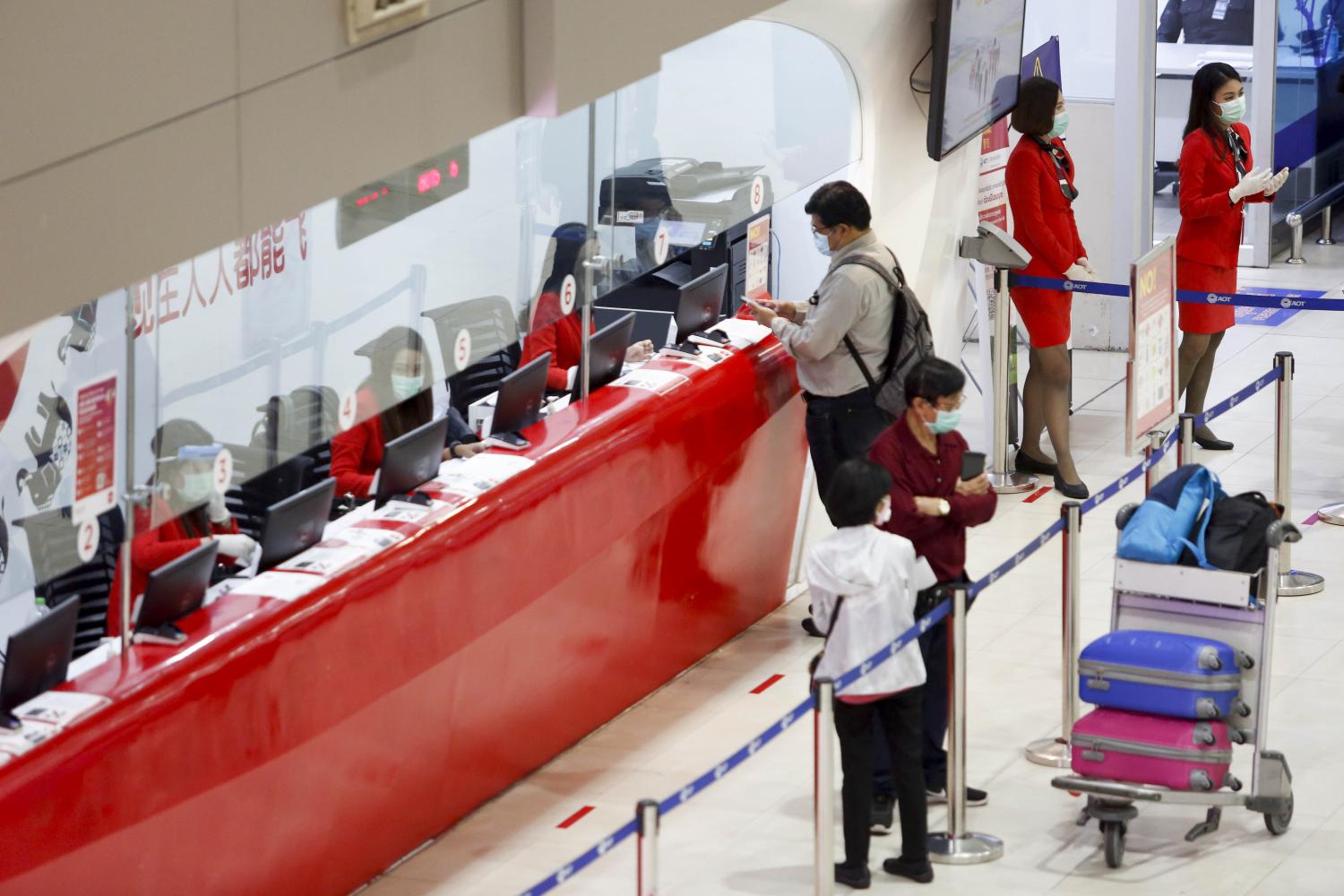
Thai AirAsia's executive chairman is proposing to the government a policy allowing one day working from home per week to avoid public congestion and boost the domestic tourism market to reach its target of 100 million trips this year.
As more people get used to working from home, the government should consider allowing civil servants and private companies to work remotely one day a week, said Tassapon Bijleveld, executive chairman of SET-listed Asia Aviation (AAV) and the largest shareholder of Thai AirAsia.
He said that when people are not bound to an office routine for Fridays, there's a chance they'll consider taking more trips for three-day weekends.
The Tourism Authority of Thailand and the Finance Ministry are working on a tourism stimulus plan to make activities more affordable in the second half of the year.
Mr Tassapon said he discussed the idea with the state agency, arguing that it would help efforts to push domestic tourism once the coronavirus crisis ends.
"The domestic market still has a chance to take the lead in restoring the national economy, but it will depend on the scale of efforts from the government and cooperation from the private sector," he said.
He also encouraged the Interior Ministry and governors of each province to scrap the 14-day quarantine for inter-provincial travellers, as well as make clear whether a health certificate is needed. Some provinces have not clarified the rules, and airlines cannot plan routes to those destinations.
Mr Tassapon said that while the aviation industry in Thailand is at a critical stage, the government can help it by offering local travellers a tax deduction on expenses for domestic airfares, which the previous scheme didn't cover.
According to the Tourism and Sports Ministry, local travellers took 24.7 million trips during the first four months of this year, down 50.3% year-on-year, generating 190 billion baht for the economy, down 48.3%.
Mr Tassapon said Thailand's tourism landscape after the global health crisis will lean towards quality tourists because more requirements for each trip will make people want to stay longer and spend more in Thailand instead of coming 3-4 times a year as they did before the pandemic.
Moreover, Thailand should preserve the natural resources that have been restored during the outbreak.
To achieve those goals, attractions are necessary for certain areas such as the northeastern provinces of Thailand.
In the past, most tourists went to southern Thailand, which boasts plenty of famous resort islands, resulting in exploitation of nature and unbalanced tourism revenue.
The Board of Investment should invite a major theme park operator such as Disney or Universal Studios to open a full-scale park in destinations that lack natural attractions, Mr Tassapon said.
He noted that almost every province in the Northeast has an airport already. New investment could create many jobs for local communities.
